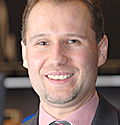Bonds: Strong fluctuations, but no trend

The US Federal Reserve's interest rate policy is currently the dominant topic on the bond markets. Rarely has it been as difficult to make a reliable forecast as it is at present. This is one of the reasons why bond prices are currently unable to find a sustainable direction.
11 July 2025. FRANKFURT (Börse Frankfurt). The eagerly awaited “deadline day” in the global customs conflict turned out to be a non-event on Wednesday after Donald Trump prematurely extended the deadline for new import tariffs on the US to August 1. The newly proposed tariffs, for example on Brazil and Canada, no longer caused much concern. “The markets have now become accustomed to Trump's negotiating tactics and see his tariff threats as part of the negotiating process,” explains Raffaele Antacido of ICF Bank.
Nevertheless, there were stronger movements on the US bond markets during the week. Yields on 30-year US Treasuries initially continued their upward trend in the first half of the week, approaching the 5.0 percent mark at their peak. At that point, the markets were influenced not only by robust labor market data but also by renewed calls for the resignation of Federal Reserve Chairman Jerome Powell by the US president. According to Ralf Umlauf of Helaba, the constant criticism of the Fed is one of several factors that could lead to a loss of confidence and jeopardize the US's status as a supposedly safe haven for investors.
US central bankers fail to reach consensus
At the end of the week, US bonds recovered significantly, with yields falling back to the previous week's level. The minutes of the latest Fed meeting raised hopes of a slight interest rate cut. However, they also revealed disagreement among US central bankers on how Donald Trump's tariff agenda will affect inflation. “According to the minutes, 10 out of 19 central bankers expected at least two interest rate cuts by the end of the year. Seven, however, did not anticipate any easing of monetary policy. Two saw one interest rate cut,” Antacido summarizes.
Robert Greil, chief strategist at Merck Finck, does not expect an interest rate cut in the US, at least in the short term: “The Fed is likely to continue to wait and see, mainly because of the future inflation risks associated with Trump's new copper tariffs and possibly further industry tariffs, and will not cut its key interest rates at its July meeting either.” Antacido also considers the probability of a short-term interest rate cut to be low following the recent positive labor market report in the US.
Bund Future defends May lows
On the European bond markets, the yield on ten-year German government bonds climbed from 2.54 percent to 2.67 percent compared to the previous week. However, after a sharp rise at the start of the week, things calmed down again on Wednesday. According to Ralf Umlauf of Helaba, the Bund future, which serves as a price barometer, managed to stay above the significant May lows (129.30 and 128.97 points). “This means that the overall, broad-based sideways trading continues.” In his view, it would be important to overcome the resistance in the form of the 21- and 55-day lines, which are currently in the 130.50 point range. In this case, the Bund Future would have potential to rise to 131.33 points and then to the contract high of 131.95 points.
The “summer slump” is looming
In corporate bond trading, established companies remain in demand. Gregor Daniel from Walter Ludwig Wertpapierhandelsbank reports purchases of two Mercedes-Benz bonds (DE000A382988 and DE000A3LH6U5). Bonds from Deutsche Post (XS3084418907) and MTU (XS2887896574) are also in demand. Tim Oechsner from Steubing AG sees some turnover in German new issues with a denomination of 1,000 euros. These include bonds from the Free Hanseatic City of Hamburg (DE000A3MQTC9), NRW Bank (DE000NWB0AZ1) and the Kreditanstalt für Wiederaufbau (DE000A4R2L42). Overall, however, Oechsner reports relatively low turnover and fewer new issues. The typically declining liquidity at this time of year makes trading correspondingly more difficult, especially on the bid side. “Many market participants are entering summer slump mode.”

Gregor Daniel
By Thomas Koch, 11 July 2025, © Deutsche Börse AG
About the Author
Thomas Koch is a CEFA investment analyst, investment specialist for structured products, and certified certificate advisor. Since early 2006, he has been covering capital market events as a freelance journalist.
Feedback and questions to redaktion@deutsche-boerse.com





